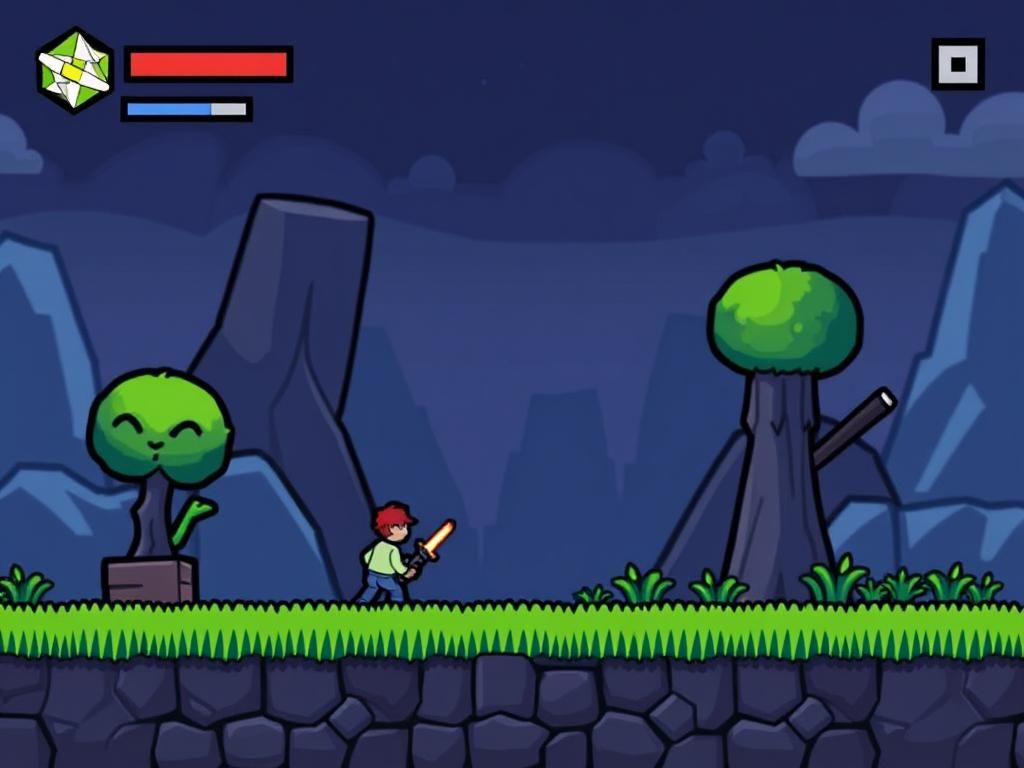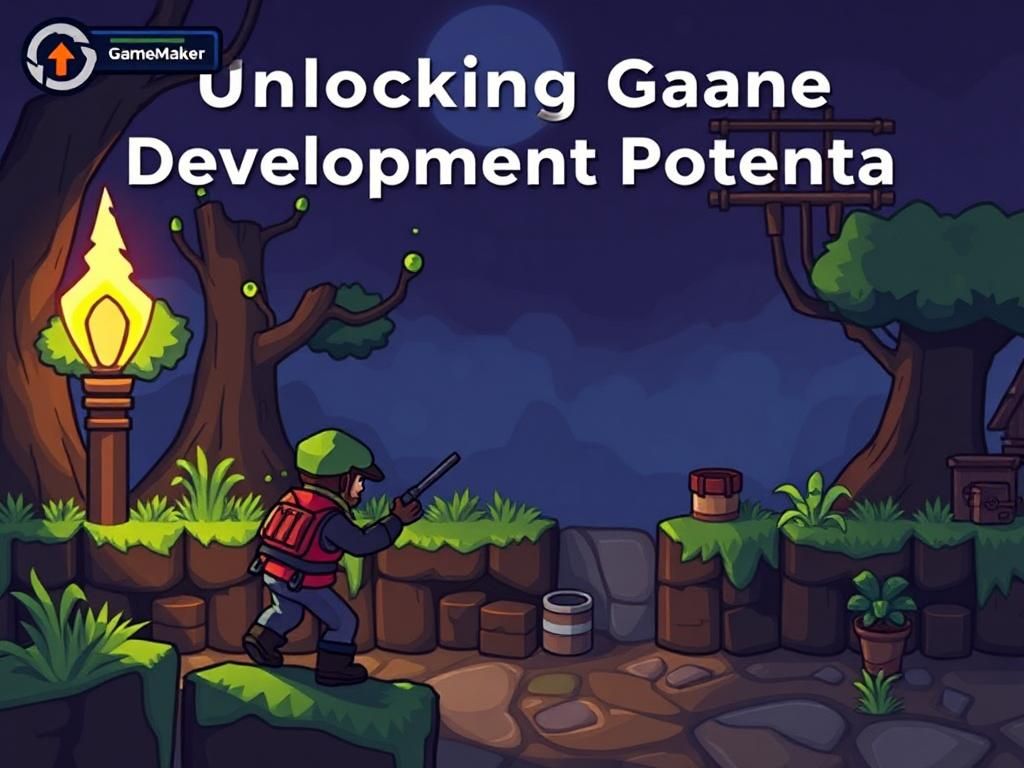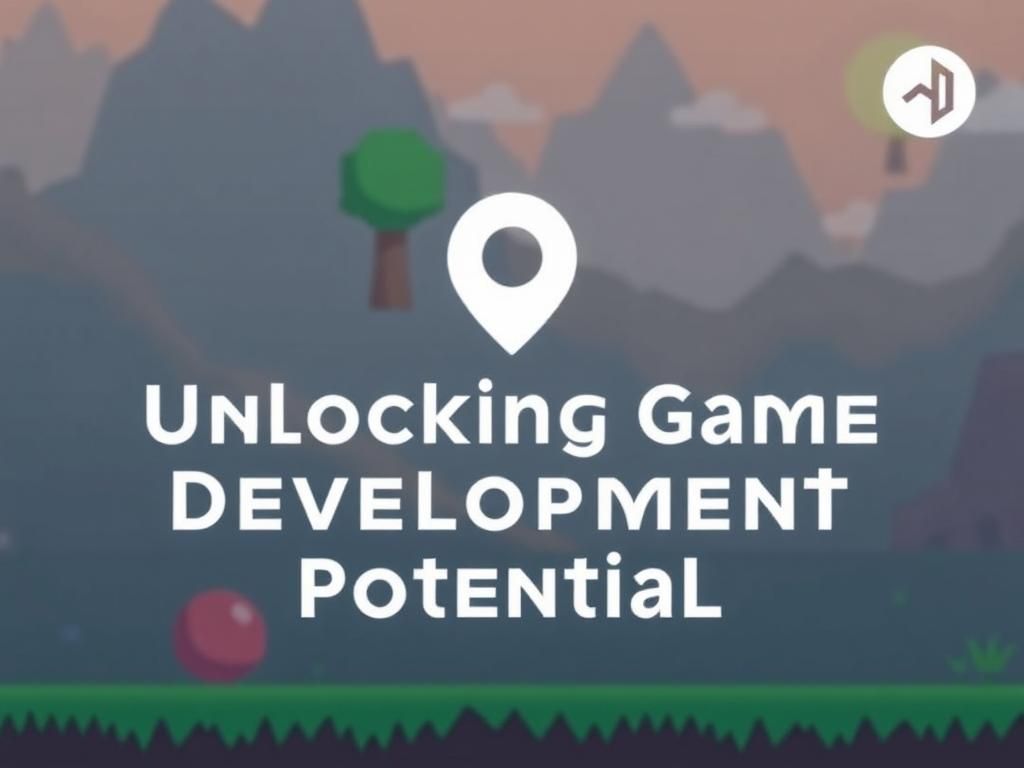GameMaker has been a cornerstone of indie game development since its inception in 1999. Originally developed by Mark Overmars, this versatile tool has transformed significantly over the years, evolving from a simple 2D game maker to a robust platform that supports both amateur and professional developers alike. With its user-friendly interface and powerful features, GameMaker has fostered the creation of countless games, contributing significantly to the indie game scene.
The importance of GameMaker in the gaming industry cannot be overstated. Its accessibility has allowed a diverse range of creators to bring their ideas to life, fostering a vibrant community of indie developers and hobbyists. This article serves as a comprehensive guide to GameMaker, exploring its features, tutorials, industry news, community resources, monetization strategies, and much more—all aimed at empowering users to make the most of GameMakerBlog.net.
Key Features of GameMaker
Development Environment
The development environment of GameMaker is designed to be intuitive and efficient. The user interface comprises an organized workspace that includes a game window, resource tree, and various tools at your disposal. One standout feature is the drag-and-drop functionality, which allows users to create complex game mechanics without deep programming knowledge. For those who prefer a coding approach, the built-in code editor supports the highly versatile GameMaker Language (GML), enabling precise control over game logic.
Graphics and Resources
GameMaker shines when it comes to graphics and resources. The software comes with a library of built-in assets, including sprites, sounds, and backgrounds. For developers looking to customize their games, importing custom graphics and sounds is straightforward. The animation capabilities are particularly impressive, allowing developers to create fluid animations that enhance the gaming experience.
Cross-Platform Development
One of the key advantages of GameMaker is its support for cross-platform development. With the ability to export games to multiple systems, such as Windows, macOS, Android, and HTML5, developers can reach a broader audience. This feature sets GameMaker apart from competitors like Unity and Unreal Engine, which may not offer the same level of ease for 2D game development.
GameMaker Tutorials
Beginner Guides
For newcomers, GameMaker provides a nurturing environment with beginner guides that focus on the essentials of game creation. A step-by-step approach ensures users can set up their first project smoothly. Learning to understand sprites, objects, and rooms form the foundation for more complex mechanics. Basic game mechanics such as movement, collision, and scoring are covered thoroughly to provide an essential skill set for budding developers.
Intermediate Tutorials
Once comfortable with the basics, developers can delve into intermediate tutorials that focus on advanced scripting using GML. The integration of sound and music enhances the gaming experience, while tutorials on creating GUI elements and handling user input further enrich the game development process.
Advanced Techniques
For those looking to push their skills further, advanced techniques cover critical topics like optimization strategies for performance enhancement, multiplayer features, and networking basics. Additionally, AI development and pathfinding in games are explored, allowing developers to create intelligent in-game entities.
Industry News and Updates

GameMaker Software Updates
Staying updated with the latest software versions is crucial for developers. GameMaker regularly releases updates that introduce new features, user enhancements, and bug fixes. Monitoring patch notes ensures that developers are aware of any changes that could affect their projects.
Featured Games Developed with GameMaker
Showcasing successful indie games developed with GameMaker provides inspiration to aspiring developers. In-depth case studies highlight the game creation process, challenges faced, and triumphs achieved, offering invaluable insights for those on the same path. Additionally, interviews with developers bring real-world perspectives on using GameMaker effectively.
Community and Support Resources
Forums and Online Communities
The GameMaker community is vast, with forums dedicated to user discussion, troubleshooting, and sharing game development tips. Platforms such as Discord and Reddit host vibrant communities where developers can seek advice, share their work, and collaborate with others. For additional resources, visiting the official GameMaker forums can provide ongoing support.
Learning Resources
To complement your learning journey, various resources are available. Recommended books and online courses can provide structured learning paths, while YouTube channels and video tutorials deep-dive into specific features of GameMaker. Following trusted blogs gives developers up-to-date information about the industry and tips on maximizing their use of GameMaker.
Troubleshooting and FAQs
Despite its user-friendly design, common issues may arise for GameMaker users. Familiarizing yourself with troubleshooting tips and tricks is essential to overcome these challenges. A dedicated FAQ section addresses frequently asked questions related to both beginners and intermediate users, ensuring help is readily available.
Monetization Strategies
Game Publishing Options
Understanding game publishing options is fundamental for indie developers looking to launch their creations. Platforms such as Steam and itch.io offer avenues to distribute games to a broad audience. Proper preparation for release—including creating marketing materials and identifying target audiences—can significantly impact a game’s success.
In-Game Monetization Methods
Implementing in-game monetization methods requires careful planning. This section discusses the pros and cons of various strategies, including advertisements, in-game asset sales, and downloadable content (DLC). Developers must weigh subscription models against one-time purchases to determine the best approach for their games.
| Monetization Method | Advantages | Disadvantages |
|---|---|---|
| Ads | Potential for passive income | May disrupt user experience |
| In-Game Assets | Additional revenue stream | Requires continuous updates |
| DLC | Encourages player engagement | Dependency on original game’s success |
| Subscriptions | Steady revenue | Maintenance of user base required |
| One-Time Purchase | Simplicity for users | Higher upfront cost may deter customers |

Conclusion
Staying Updated with GameMaker Blog
Encouraging readers to subscribe to GameMakerBlog.net enhances community engagement and keeps them informed about the latest developments in game creation. It is essential to emphasize the importance of community support, providing a safety net for developers navigating the intricate world of game development.
Call to Action
Engage with the Community
We invite readers to share their projects, showcase their creativity, and participate in discussions to foster a collaborative atmosphere. Following our social media handles will ensure you stay updated with our latest posts and developments. Join the conversations and become part of our thriving community dedicated to game development with GameMaker.
FAQs
1. What is GameMaker?
GameMaker is a game development platform that allows users to create 2D games with ease using both drag-and-drop functionality and coding through GameMaker Language (GML).
2. Is GameMaker suitable for beginners?
Absolutely! GameMaker is designed with beginners in mind, providing various tutorials and resources to help users learn the ins and outs of game development.
3. Can I publish my game on different platforms?
Yes, GameMaker supports cross-platform development, allowing you to publish your game on systems such as Windows, macOS, Android, and HTML5.
4. Are there any costs associated with using GameMaker?
GameMaker offers a free trial, but to access all features, a paid subscription is required.
5. What kinds of games can I make with GameMaker?
You can create a wide variety of 2D games, including platformers, puzzles, and mobile games, thanks to GameMaker’s versatile tools.
6. Where can I find help for GameMaker troubleshooting?
The GameMaker community forums, Discord servers, and GameMakerBlog.net’s resources can provide assistance for any troubleshooting questions.
7. Can you monetize games developed with GameMaker?
Yes, you can monetize your games through various methods, including exploring avenues like ads, in-game purchases, and selling on platforms like Steam.
8. What resources are available for learning GameMaker?
There are numerous resources available, including online courses, YouTube tutorials, books, and blogs dedicated to GameMaker education.
9. How often does GameMaker update its software?
GameMaker frequently releases updates that include new features, bug fixes, and enhancements, so staying informed through GameMakerBlog.net is beneficial.
10. What is the significance of the GameMaker community?
The GameMaker community provides support, shared knowledge, and collaboration opportunities, making it an invaluable resource for developers of all skill levels.
